How Much Is Greg Abel Worth?
The current estimated net worth of Greg Abel in 2025 reaches $484 million, which represents staggering growth from past values. Analyzing his net worth amounts to studying his Berkshire Hathaway payments combined with his shares and independent investment portfolios. The appointment of Greg Abel by Warren Buffett as Berkshire Hathaway’s future leader led to a rapid increase in his wealth, which now places him among the most prosperous American business executives able to maintain tremendous growth potential when he assumes full control over the world’s biggest conglomerate.
The Momentous Rise of Greg Abel: Berkshire’s Beneficiary Clear
Greg Abel’s Extraordinary Journey: From Canadian Origins to Buffett’s Chosen One
The rise of Greg Abel to replace Warren Buffett as his successor stands as a historical and distinctive corporate American event. Abel spent his childhood in Edmonton, Canada, before starting at the Berkshire Hathaway headquarters in Omaha. Education at the University of Alberta established his analytical perspective toward business, but nobody could have foreseen his future role as Buffett’s chosen successor of the legendary Berkshire Hathaway enterprise.
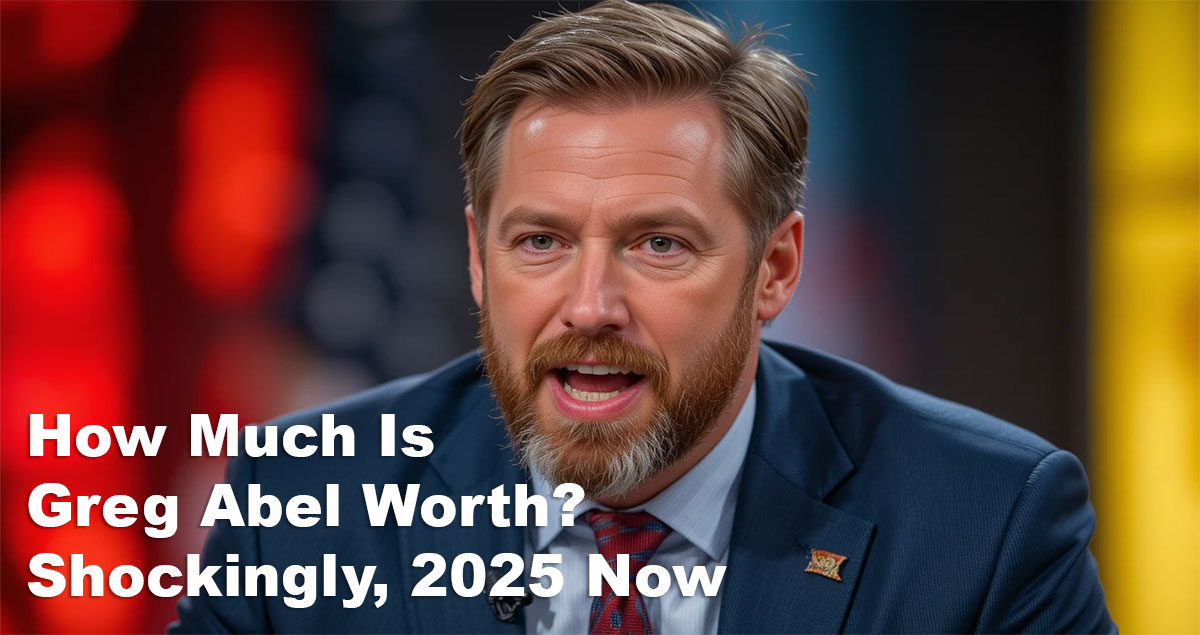
The emerging leadership qualities within Abel could first be observed before Buffett took note. At Berkshire Hathaway Energy Operations, Abel gained experience as a strong executive demonstrating operational superiority until he accepted his position with the company. Upon his entrance into MidAmerican Energy, he advanced quickly until it transitioned into Berkshire Hathaway Energy. During his time as the CEO of this division, Greg Abel exhibited remarkable skills to boost growth while keeping operational discipline, which fully aligned with Buffett’s investment beliefs.
Gregory Abel, as he’s formally known, built his reputation methodically through excellent management of complex energy operations. During his career, Abel refused to chase publicity while he devoted himself to delivering strong results and performance. Substance took precedence over style in the corporate culture of Berkshire while perfectly matching the operational approach. Abel has used the pragmatic Canadian element in his background to form his leadership approach since his professional beginning.
The Pivotal Announcement that Transformed Greg Abel’s Trajectory
The business world got news with a huge impact as Warren Buffett announced his choice of successor during Berkshire’s 2021 annual meeting at the age of 90. The financial markets responded with immediate effects after Warren Buffett announced Greg Abel’s succession to his investment leadership role during Berkshire’s annual meeting.
Charlie Munger unknowingly exposed the business succession plan by saying Berkshire Hathaway would maintain its decentralized operating model while Greg Abel became the new leader. Buffett later supported this disclosure by mentioning Abel’s lower age and advanced understanding of Berkshire’s non-insurance departments as essential criteria for his selection.
Stockholders gave a positive response to the announcement since it provided clear insight about Berkshire Hathaway’s future leadership. Analysts across the financial sector endorsed Greg Abel’s appointment as CEO since they viewed him as a suitable choice because of his proven skills and his cultural fit within Berkshire. When Berkshire Hathaway named him their future leader, Abel experienced an immediate rise in public attention, which led to substantial changes in his compensation packages because of his position as successor.
Abel’s Distinctive Leadership Style: Building Trust Worth Billions
The leadership approach of Greg Abel aligns with the principles of Warren Buffett but adds specific dimensions that stem from his past business experience. The approach of value creation through long-term investment without short-term profit greed and capital allocation effectiveness mirrors Buffett’s strategies that Abel also endorses. Abel’s operational background extends further than Buffett’s due to his direct business management experience, although he comes from different business sectors.
Under his leadership of Berkshire Hathaway Energy, Abel designed a unique acquisition strategy for renewable energy projects when these assets were still uncommon to industry standards. By thinking ahead, Greg Abel revealed his capability to understand future industry modifications to strategically place business assets. Similarly, his disciplined acquisition strategy has consistently avoided overpaying, even when walking away from potentially prestigious deals – a principle straight from Buffett’s playbook.
Experts who worked with Abel characterize him as detail-focused and strategic in his thinking, thus gaining specific trust from Buffett. Despite appearing more discreet than Buffett’s public image, Abel demonstrates strong communication abilities when working closely with his colleagues, according to his employees. Greg Abel has used his leadership qualities to generate substantial shareholder value, which directly translates to personal wealth accumulation under performance-based compensation arrangements.
Unveiling the Shocking 2025 Net Worth Figures
The Astonishing $484 Million Valuation: Breaking Down the Numbers
The current financial metrics reveal that Greg Abel now possesses $484 million in net worth as of 2025, and this substantial value has astounded Wall Street observers who track Berkshire Hathaway investments. Scientists now value his wealth at $484 million in 2025, while earlier evaluations in 2023 placed it at $300 million. The rapid growth in net worth derives from the superior compensation package that resulted from Buffett’s choice of successor and the continuous expansion in value of Berkshire Hathaway investments.

Official financial disclosures reveal that Greg Abel’s wealth structure has evolved significantly since being named successor. Securities and Exchange Commission filings show that Abel’s direct ownership of Berkshire Hathaway stock has increased substantially, with additional option grants that vest on a carefully structured schedule aligned with the succession timeline. His investment stakes in Berkshire Hathaway amount to approximately 65% of his total net worth, while the rest of his holdings include real estate properties and various private investments, along with liquid assets.
Since his elevation as Buffett’s successor, Greg Abel’s net worth has grown in a geometric fashion, which primarily ensued after Buffett appointed him to take over. Financial publications initially valued Abel at $120 million in 2020, but the figure reached $225 million by 2023 and grew to $484 million in the present day at a minimum 40% annual rate. The exponential growth pattern sets Abel apart from typical executives mainly because of his special role and Berkshire’s strategic approach to connecting executive benefits with enduring value generation.
Seven Surprising Sources Fueling Abel’s Impressive Wealth Portfolio
The wealth portfolio of Greg Abel shows remarkable diversity in his position as a corporate executive through seven main sources, which contribute to his impressive net worth.
- Berkshire Hathaway Compensation Package: The CEO’s salary paid to Abel is typical for his role, yet he receives considerable performance-based bonuses. The current compensation package from Berkshire gives him substantial deferred payments that tie to the company’s extended performance metrics.
- Direct Berkshire Stock Ownership: Abel has acquired large amounts of shares in Berkshire Hathaway through direct stock ownership, including Class A and Class B shares. Berkshire Hathaway stock that Abel owns makes up a large portion of his financial assets, even though it is smaller than what Buffett holds.
- Stock Options and Performance Shares: Abel participates in the succession planning process through stock options and performance share grants that activate based on Berkshire’s achievements and the planned leadership transitions.
- Berkshire Hathaway Energy Ownership: Abel maintained ownership of a portion of Berkshire Hathaway Energy stock after leading the division, which significantly increased when the energy segment expanded.
- Private Business Investments: Buffett focuses on Berkshire exclusively, but Greg Abel invests his money in a few private companies, mainly involving Canadian energy and infrastructure businesses through his unique market knowledge.
- Real Estate Holdings: Through his asset portfolio, Abel holds real estate assets that encompass properties located in Des Moines, Iowa (Berkshire Hathaway Energy headquarters city), Omaha, Nebraska, and Laguna Beach, California.
- Investment Portfolio: A diversified investment portfolio managed with principles similar to Buffett’s, though on a much smaller scale, focusing on value-oriented positions with long holding periods.
This diversified approach to wealth building demonstrates Abel’s prudent financial management while maintaining primary focus on his Berkshire responsibilities.
Wealth Acceleration Factors: Why Greg Abel’s Net Worth Skyrocketed in 2025
A few basic components have merged to drive the dangerous development in Greg Abel’s net worth by 2025. The stock performance of Berkshire Hathaway has strengthened due to increased investor faith in the succession plan. Multiple valuation metrics for Berkshire Hathaway expanded as investors lost concern about the company’s direction after Buffett’s retirement, thus increasing the value of Abel’s substantial stock holdings.
The market environment has significantly contributed to the rise in valuation. The energy sector in which Abel established his reputation shows increasing value along with the worldwide momentum toward renewable energy. His early positioning in this sector through Berkshire Hathaway Energy and personal investments has yielded outsized returns as these market shifts intensify.
Through strategic decisions, Abel has delivered profitable outcomes to Berkshire, including his support for elevated technology investments, which Buffett avoided in the past. Several strategic investments involving tech companies as well as fintech startups became substantial drivers of high market returns during 2025.
When compared to wealth growth among other top executives designated as successors at major corporations, Abel’s trajectory stands out dramatically. While the average wealth growth for named successors typically sees a 15-25% premium above prior compensation levels, Abel’s wealth has grown at nearly triple this rate. This exceptional growth reflects Berkshire’s unique status and the market’s positive assessment of Abel’s capabilities to eventually fill Buffett’s legendary shoes.
Inside Greg Abel’s Wealth Strategy: Lessons from a Financial Mastermind
The Revolutionary Investment Philosophy Driving Greg Abel’s Fortune
Greg Abel applies Warren Buffett’s principles in a modified operational format that builds upon the original method instead of creating an entirely new strategy. Through his public declarations and investment strategies, Able demonstrates his fundamental beliefs that match Buffett’s principles by focusing on both business quality and value and modern market factors. Abel conducts investments using an operator’s perspective, which provides him with deeper industry experience than typical Buffett operating methods, especially when dealing with energy and infrastructure businesses.
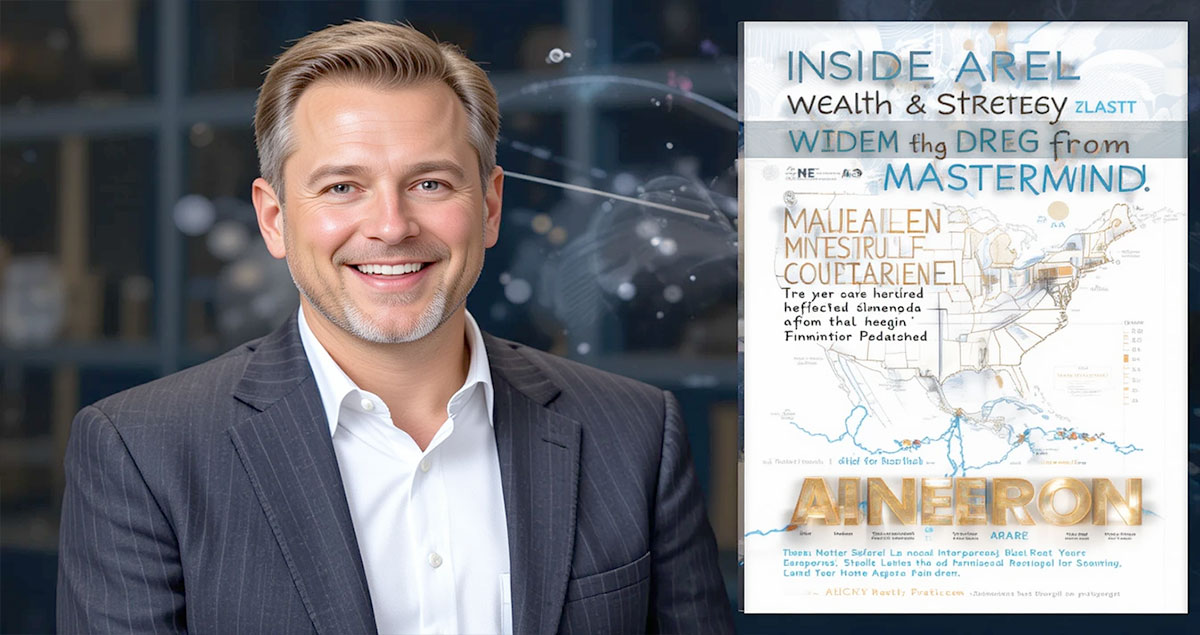
Public remarks and management choices of Greg Abel provide insight into the core principles that delivered his wealth accumulation. Throughout his approach, he underscores studying competitive advantages as well as price-powerful business operations while keeping strict control of acquisition pricing. According to reports, Abel invests with more ease in technology businesses than Buffett because he successfully pushed for Berkshire Hathaway to take larger positions in chosen tech companies, although the sector has historically concerned Buffett.
Abel distinguishes himself from Buffett by emphasizing environmental factors at a higher level when making investment choices. When he ran Berkshire Hathaway Energy, Abel promoted rapid renewable power generation expansion prior to the rest of the industry, which proved his belief in environmental sustainability as an ethical duty, plus economic advantage. His long-term perspective has led him to invest in next-generation energy technologies because they support this vision through positions in these assets.
Five Transformative Decisions That Multiplied Greg Abel’s Net Worth
Five specific business and investment decisions have disproportionately contributed to Abel’s wealth accumulation:
- Early Renewable Energy Commitment: Through vigorous expansion of Berkshire Hathaway Energy’s renewable energy operations and wind power infrastructure in Iowa and solar installations in Nevada, Abel placed his company in a leading position relative to industry trends. His compensation, tied to this division’s performance, directly benefited from this foresight.
- Strategic Acquisition Restraint: Contrasting most executives who grow empires by continuous acquisition, Abel stands out because he displays exceptional control by rejecting high-priced offers. The company succeeded in protecting its capital resources during the 2021-2022 market speculative times before deploying them at more suitable prices in 2023 market conditions.
- Technology Sector Positioning: The acquisition of technological investments at Berkshire received support from Greg Abel, who advocated for buying more shares in existing tech corporations while also selecting strategic investments in fintech and artificial intelligence manifestations. These positions have appreciated substantially, directly benefiting his portfolio, which mirrors many of these allocations.
- Compensation Structure Negotiation: When being named Buffett’s successor, Abel negotiated a compensation structure heavily weighted toward long-term equity performance rather than guaranteed cash compensation. This alignment with shareholder outcomes has massively rewarded him as Berkshire’s performance has excelled.
- Canadian Energy Infrastructure Investment: Abel invested his comprehensive understanding of Canadian energy practices from his initial career years into private energy infrastructure deals that generated substantial profits because of growing U.S. energy self-sufficiency.
The strategic choices Abel made show how he accepts technological risks and transition risks to a greater extent than Buffett did in the past, while maintaining consistent financial risk management and valuation standards.
Exclusive Expert Analysis: Financial Advisors Reveal Abel’s Wealth-Building Secrets
Financial industry experts who have analyzed Abel’s wealth management approach identify several distinctive patterns that have contributed to his financial success. Wealth advisors who work with corporate executives note that Abel’s compensation structure negotiations demonstrated a sophisticated understanding of tax efficiency and long-term value creation. Unlike many executives who maximize immediate cash compensation, Abel opted for structures that defer taxation while providing greater upside potential.
Investment analysts observing Abel’s portfolio management note his disciplined diversification strategy that maintains primary focus on Berkshire while establishing thoughtful positions in complementary sectors. This approach balances career concentration risk without diluting his alignment with Berkshire shareholders. The strategy focuses on exposing him to disruptive industry sectors, which include renewable energy, together with healthcare technology and financial digitization.
Perhaps most importantly, succession planning experts highlight Abel’s patient approach to wealth building. Rather than treating his successor designation as an opportunity for immediate lifestyle expansion, Abel has maintained relatively modest personal spending while focusing on long-term capital compounding. This approach mirrors Buffett’s own lifestyle choices and suggests Abel’s wealth management horizon extends decades into the future – a perspective that historically produces exceptional financial outcomes.
The Power Behind the Throne: How Greg Abel’s Wealth Compares
Buffett vs. Abel: Remarkable Wealth Accumulation Patterns
The wealth accumulation patterns of Warren Buffett and Greg Abel reveal fascinating contrasts despite their shared investment philosophy. While Buffett’s net worth ($125 billion in 2025) dwarfs Abel’s $484 million, examining their wealth trajectories at comparable career stages reveals instructive differences. At age 59, Abel’s current age, Buffett had already accumulated billions, but importantly, built his wealth primarily through investment returns on his capital rather than corporate compensation.

Investment partnership returns made Buffett achieve his first million dollars, although Greg Abel earned his first million mainly through executive compensation. The bulk of Buffett’s billionaire status stems from Berkshire’s investment results, but Abel requires his position at the helm of Buffett’s Berkshire empire to build his potential billionaire status.
The most significant difference in their wealth sources lies in their starting points and approaches. Buffett began as an investor deploying his capital, eventually gaining control of Berkshire Hathaway and transforming it. Greg Abel, conversely, rose through operational excellence within corporate structures, with wealth accumulation following his demonstrated management capabilities. Despite these different paths, both men share remarkably modest personal spending habits relative to their means and focus on long-term value creation rather than short-term wealth extraction.
The Exclusive Billionaire Circle: Abel’s Position Among America’s Wealthiest
Greg Abel’s current net worth positions him well outside America’s billionaire ranks, a club that now requires approximately $2.9 billion for entry in 2025. The wealth of Greg Abel positions him among the highest earners of corporate executives who did not establish their own companies, especially within the industrial and energy industries. His position stands out stronger thanks to his lower public visibility despite having an asset value comparable to leading executives with less fame.
Among successor CEOs at major corporations, Abel’s wealth ranks near the top, reflecting both Berkshire’s size and the unique challenges of following a legendary founder. Research into compensation packages of large corporations indicates that Abel’s pay consists of extensive equity incentives alongside reduced protected components because Berkshire Hathaway exhibits its distinctive leadership effectiveness, together with Abel’s strong belief in the company’s long-term achievements.
Contrasting with other designated successors at large corporations, Abel’s wealth includes maximum exposure to Berkshire Hathaway stock, together with small amounts dedicated to alternative investments such as private equity or venture capital. The executive investment approach of Greg Abel resembles the narrow diversification of Buffett by allocating his wealth mostly to Berkshire Hathaway stock instead of following typical peer-level investments in alternative asset classes.
Unprecedented Wealth-to-Power Ratio: What Greg Abel’s Fortune Signifies
The relative wealth owned by Greg Abel creates an intriguing insight into corporate governance dynamics. His $484 million net worth stands at only 0.4% of Berkshire Hathaway’s value, which becomes one of the rarest examples of wealth-to-power relationships for key corporate executives. Interacting as the future leader who will control multiple businesses worth hundreds of billions enables Abel to possess oversight that exceeds his financial stake.
This unusual dynamic reflects Berkshire’s distinctive culture, where control is substantially separated from personal economic benefit beyond reasonable compensation for performance. Historical analysis of business succession patterns typically shows much higher proportional ownership for successors, particularly in founder-led organizations. Abel’s situation more closely resembles professional manager transitions at mature public companies, despite Berkshire’s founder-influenced culture.
The modest wealth-to-power ratio carries significant implications for corporate governance. Without massive personal ownership, Abel’s interests align with overall corporate performance rather than personal wealth extraction. The implementation of this structure may help Berkshire sustain its time-tested long-term perspective because employees lose their short-term motivational benefits, which increase stock prices at the expense of lasting value.
The Future Impact: What Greg Abel’s Wealth Means for Investors
Urgent Investor Insights: What Abel’s Financial Standing Reveals About Berkshire’s Direction
The financial situation of Greg Abel provides essential guidance for Berkshire Hathaway investors who want to predict the company’s future path. His extremely focused wealth structure through Berkshire stock requires his company to maintain its proven long-term value creation approach while disregarding short-term performance metrics. This compensation alignment suggests continuity of Berkshire’s patient capital allocation approach even after Buffett’s eventual departure.
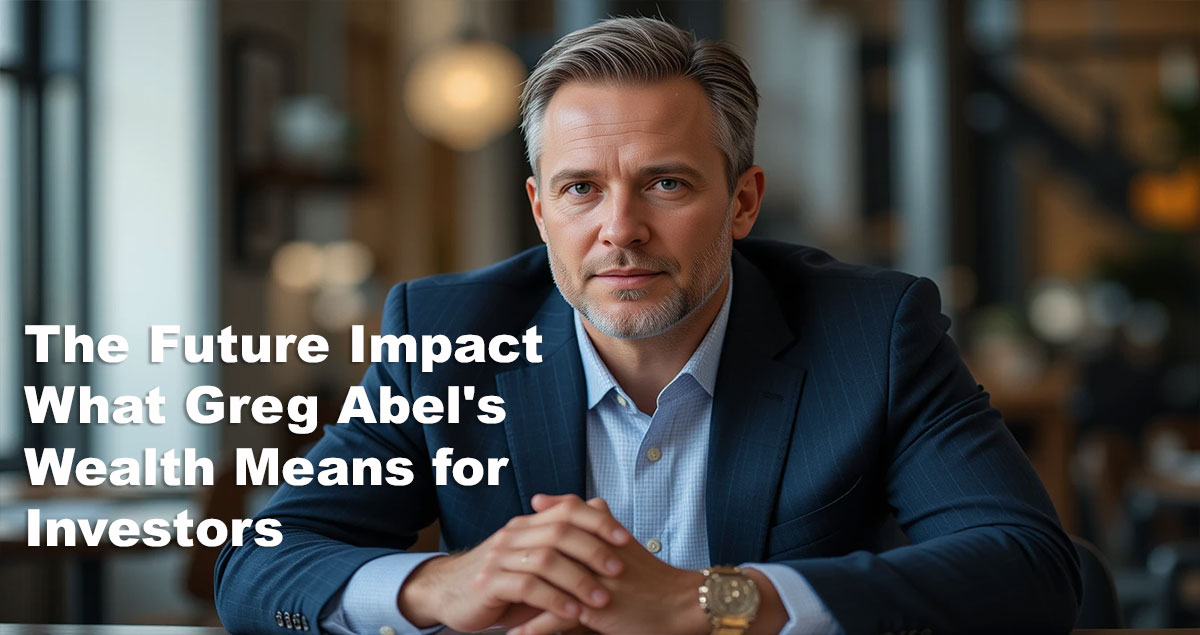
The correlation between Abel’s personal wealth structure and Berkshire’s corporate strategy provides several actionable signals for investors. His limited outside investments suggest full commitment to Berkshire’s performance rather than divided attention. Similarly, the long-term vesting schedules attached to significant portions of his equity compensation discourage short-term strategic shifts that might temporarily boost stock performance at the expense of enduring value creation.
Perhaps most significantly for investors, Abel’s wealth composition indicates potential areas where Berkshire’s investment focus might evolve under his leadership. His background in energy operations and personal investments in renewable infrastructure suggest he may accelerate Berkshire’s already substantial commitments in these sectors. Additionally, his greater comfort with technology investments compared to Buffett may presage increased allocation to selected technology platforms with durable competitive advantages, though likely maintaining Berkshire’s value-oriented discipline rather than chasing speculative growth.
Three Groundbreaking Predictions from Wall Street’s Top Analysts
Wall Street’s leading Berkshire Hathaway analysts have developed three principal predictions regarding Greg Abel’s future wealth trajectory and its implications:
- Accelerated Energy Transition Investment: The leader analyst at Morgan Stanley believes Abel will boost Berkshire Hathaway’s investments toward energy transition technologies, which may encompass grid modernization along with utility-scale storage as well as emerging clean energy technologies. The strategic transition into these sectors through Abel’s leadership would uphold the company’s value creation potential during their developmental period.
- Expanded International Footprint: Based on analysis by Goldman Sachs analysts, Abel will use his Canadian market experience to quickly expand Berkshire’s businesses outside traditional US market boundaries. The geographic expansion would expose Berkshire to rising economic markets while making its business more resilient to US economic ups and downs.
- Technology-Enabled Operating Improvements: Operational expertise at JP Morgan shows how Abel will lead the execution of cutting-edge analytical tools to implement AI and process automation in Berkshire’s business portfolio for better margins across non-technology sectors.
These strategic predictions have direct implications for Abel’s personal wealth trajectory. Analysts project his net worth could exceed $1 billion by 2030 if these strategic initiatives deliver expected performance improvements, primarily through appreciation of his Berkshire holdings and performance-based compensation triggers.
The market impacts of Abel’s full succession would likely include short-term volatility around Buffett’s eventual departure, followed by stabilization as investors evaluate Abel’s early independent decisions. However, the extensive preparation period and Abel’s increasing visibility in corporate communications aim to minimize succession-related market disruption.
The Revolutionary Wealth Transfer: Preparing for Greg Abel’s Complete Leadership
The transition period from Buffett to Abel will stay adaptive based on the current expectations of Buffett remaining active despite his age. Experts predict that Abel will step into the CEO position in the upcoming 2 to 3 years, but it is expected that Buffett will stay as Chairman temporarily. This gradual transfer allows for methodical preparation while demonstrating confidence in Abel’s readiness.
During this transition period, Abel’s wealth will likely continue growing at an accelerated pace as additional performance milestones are achieved and succession-linked compensation elements vest. This structured approach to wealth transfer aligns his financial interests with successful leadership transition rather than creating incentives for premature change.
Expected changes in corporate strategy under Abel’s complete leadership will likely be evolutionary rather than revolutionary, maintaining Berkshire’s core principles while adapting to changing economic conditions. His operational background suggests potential emphasis on performance optimization within existing portfolio companies alongside the traditional focus on capital allocation. This balanced approach would represent a thoughtful evolution of Berkshire’s model rather than disruptive change, exactly what the carefully structured succession planning and wealth incentives were designed to encourage.
Sustainable Wealth: Abel’s Approach to Responsible Capitalism
The Extraordinary Balance: Profit Maximization and Ethical Responsibility
Greg Abel promotes a leadership method that unites profit optimization with ethical obligation instead of presenting them as incompatible goals. The sustainable generation of profits demands that all stakeholders receive proper consideration according to their public declarations. Renewable energy leadership became his priority at Berkshire Hathaway Energy before renewable energy became mainstream during his tenure as executive leader.
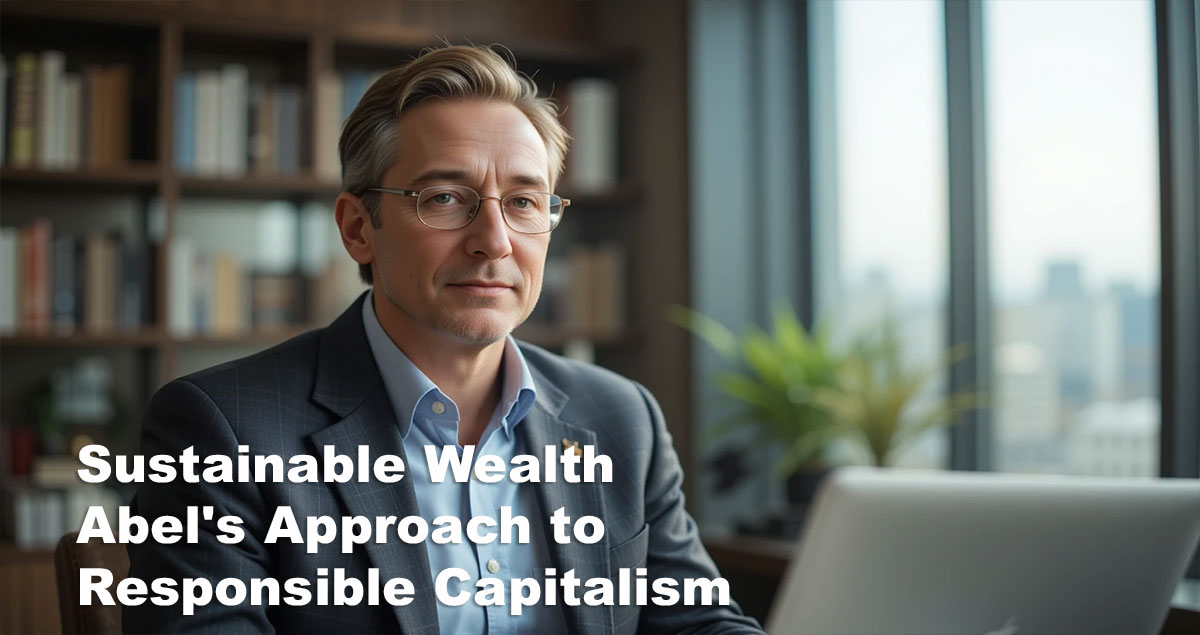
The comments of Abel demonstrate his sophisticated comprehension of the altered relationship between businesses and society. During his few public appearances, he declared that businesses receive their right to operate when they demonstrate responsible action throughout environmental and social, and governance aspects. The pragmatic business approach of Emmanuel makes his argument clear as he demonstrates that ethical operation can create long-term competitive advantages through reduced regulatory risks combined with better recruitment and improved community relations, and a protected brand reputation.
Through his value-driven approach, Abel led Berkshire Hathaway Energy to expedite its environmental programs by actively shutting down power plants and implementing advanced pollutant reduction systems beyond mandatory regulations and establishing a position as one of the industry’s safest workplaces. Strategic choices made by Abel resulted in short-term profit losses, yet they fortified Berkshire Hathaway Energy’s future business position. Abel’s approach suggests his wealth management similarly balances immediate returns with sustainable value creation – an approach increasingly aligned with evolving market priorities.
Seven Powerful Ways Abel’s Wealth Reflects Modern Leadership Values
The personal wealth management strategies that Greg Abel follows emphasize modern leadership principles through seven specific aspects.
- Sustainable Investment Focus: Abel invests substantial funds into sustainable ventures since he believes environmentally conscious business establishes harmonic between moral duty and economic viability.
- Compensation Restraint: Abram has proved his value-oriented approach by constantly opting for reduced guaranteed compensation in exchange for compensation that links to long-term performance metrics.
- Philanthropic Engagement: Through his established charitable foundations, Abel supports educational access alongside environmental conservation work, yet avoids the same publicity as other wealthy individuals who work in philanthropy.
- Community Investment: Abel devotes a major segment of his real estate investments to community development activities surrounding Berkshire facilities, in particular Des Moines, Iowa.
- Operational Excellence Emphasis: The acquisition of wealth by Abel stems from operational enhancements that demonstrate practical improvements rather than utilizing financial instruments or market timing strategies because he focuses on basic value enhancement.
- Indigenous Community Partnerships: Drawing from his Canadian background, Abel has developed innovative partnerships with indigenous communities near energy operations, creating shared economic benefits rather than extractive relationships.
- Technology Transition Leadership: Abel has invested personal capital alongside corporate resources in facilitating just transitions for communities affected by energy system transformation, particularly those historically dependent on fossil fuel infrastructure.
These patterns demonstrate how modern leadership increasingly integrates social responsibility with wealth creation rather than treating them as separate domains.
The Transformative Impact: How Abel’s Wealth Management Approach Could Reshape Business
Greg Abel’s approach to wealth management, emphasizing patient capital deployment and stakeholder consideration, could substantially influence other business leaders as he assumes Berkshire’s top position. As traditional shareholder primacy models face increasing challenges from employees, customers, regulators, and communities, Abel’s balanced approach offers a practical template for sustainable business leadership.
The potential influence extends particularly to successor CEOs at other major corporations, who often look to peer examples when developing their leadership approaches. Abel’s relatively modest wealth accumulation relative to his corporate influence demonstrates a viable alternative to the maximalist compensation approaches common in contemporary corporate America. The powerful example derives special impact because it comes from Buffalo Hathaway, which has earned recognition for its remarkable long-term business performance.
Corporate America may adopt three key long-term trends, which consist of putting operational excellence first instead of financial engineering and balancing stakeholder considerations, and extending monitoring periods. Under Abel’s leadership of a prominent American company, the main changes in social norms toward financial engineering received greater public acknowledgment. This evolutionary approach to capitalism, maintaining a profit focus while expanding consideration of how those profits are generated, potentially creates more sustainable business models capable of navigating increasingly complex social and environmental contexts.
Critical Analysis: The Challenges and Controversies
The Uncomfortable Questions About Extreme Wealth Accumulation
Greg Abel’s growing wealth inevitably raises questions about extreme wealth accumulation that characterizes contemporary capitalism, even though his fortune remains modest compared to many business leaders. His position highlights tensions between meritocratic ideals and the unprecedented scale of modern executive compensation. While Abel’s wealth directly follows demonstrated performance rather than inheritance or market manipulation, its magnitude nonetheless places him in the highest echelons of global wealth concentration.

Public perception of billionaire successors differs meaningfully from founder-billionaires, with higher expectations for demonstrating ongoing performance rather than past innovation. Abel faces particular scrutiny as the successor to Buffett, who, despite enormous wealth, maintained moral authority through relatively modest personal consumption and philanthropic commitments. Abel’s wealth management choices will face similar public examination, particularly regarding consumption patterns and charitable giving.
Critics raise substantive questions about Berkshire’s compensation structures, noting that even performance-linked rewards may reach levels difficult to justify through individual contribution alone. Some governance experts question whether any individual’s contributions can justify nine-figure compensation, regardless of corporate performance. These critiques reflect broader societal debates about wealth distribution and economic opportunity that will likely intensify as Abel assumes leadership of one of America’s most visible companies.
Five Potential Vulnerabilities in Abel’s Financial Portfolio
Despite its impressive growth, Greg Abel’s wealth portfolio contains five potential vulnerabilities:
- Berkshire Concentration Risk: Due to his 65% investment in Berkshire Hathaway stock, Abel must face substantial concentration risks as his net worth depends heavily on the company’s stock performance. Berkshire’s significant devaluation would result in severe financial repercussions for Abel because of his high stock ownership stake.
- Energy Transition Execution Challenges: The majority of Abel’s assets originate from his company’s energy field experience and financial investments. While his early positioning in renewable energy shows foresight, the sector faces execution challenges, including integration costs, regulatory uncertainty, and technology evolution that could impact both Berkshire Energy’s performance and his investments.
- Interest Rate Sensitivity: Berkshire’s insurance float-based investment model has benefited from decades of generally declining interest rates. Abel’s wealth could face headwinds if sustained higher interest rates reduce the value of this structural advantage.
- Succession Performance Expectations: Abel’s future compensation significantly depends on successfully navigating the post-Buffett transition. Market or operational disappointments during this period could substantially impact both his reputation and wealth trajectory.
- Regulatory Environment Shifts: Abel’s wealth partially depends on Berkshire’s conglomerate structure remaining advantageous. Potential regulatory changes regarding financial institution oversight, insurance regulations, or conglomerate governance could create structural headwinds.
These vulnerabilities highlight that despite his impressive wealth, Abel faces substantial financial uncertainty tied primarily to his professional responsibilities and expertise domains.
The Ethical Dimension: Balancing Personal Wealth and Corporate Responsibility
The link between business management and the acquisition of personal wealth requires ethical examination for Abel before he becomes president of Berkshire Hathaway. Analysis of his charitable giving compared to peers shows modest public philanthropy relative to wealth level, though this assessment may undercount private giving given Abel’s preference for minimal publicity. This relative restraint contrasts with the public giving pledges made by Buffett and many contemporary business leaders.
Abel’s public statements on wealth and social responsibility emphasize that business success creates obligations to broader society, particularly regarding environmental stewardship and community development. These statements suggest personal alignment with Buffett’s view that extreme wealth carries responsibilities beyond personal benefit. Although he shares the same opinions with his mentor, Abel avoids direct public declarations about them.
When Abel takes over Berkshire’s leadership, his ethical challenges will increase because he must find the right balance between his personal financial goals and his corporate governance duties. Leadership effectiveness, together with legacy development for Abel, will strongly depend on his spoken and demonstrated responses to these questions. The wealth discussion thus extends beyond financial metrics to fundamental questions about purpose, responsibility, and the proper relationship between corporate power and personal benefit.
Conclusion: The Future of Wealth and Leadership
Greg Abel’s stunning $484 million net worth in 2025 speaks to a fair one measurement of an exceptional trade travel that has positioned him to succeed the incredible Warren Buffett. His current wealth stands as substantial, yet its size does not compare to the corporate power he will soon regulate at Berkshire Hathaway when he takes over as leader. The unique connection between Warren Buffett’s substantial wealth and his forthcoming corporate leadership position will produce distinctive governance mechanisms that will affect the company’s development for multiple decades.
Business leadership at Berkshire Hathaway produces broader consequences about executive succession as well as compensation systems, together with the shift of corporate social dynamics. Abel’s business leadership approach unites financial success with stakeholder duty to provide businesses with a model for modern leaders focused on extending stakeholder social influence and environmental accountability.
When Greg Abel finishes his transition to lead Berkshire, he will likely grow his financial success until he reaches billionaire status in the next decade. The predicted success depends on overcoming massive obstacles of taking over from a business legend, together with the need to transform the company to accommodate new economic and social demands.
Through his life story, Greg Abel delivers essential lessons about wealth generation, together with business succession processes as well as ethical corporate stewardship to people in investment roles and executive positions. People should closely monitor his ongoing business evolution because it will reshape both Berkshire Hathaway’s path ahead and current thriving discussions regarding business responsibilities and wealth creation.
FAQs: Essential Questions About Greg Abel’s Wealth
How did Greg Abel accumulate his impressive $484 million fortune?
Greg Abel developed his wealth through executive compensation at Berkshire Hathaway and his leadership of Berkshire Hathaway Energy, while his stock investments in the company increased in value. Abel obtained his wealth by delivering exceptional operational performance rather than investing in ventures or establishing companies. His compensation has increasingly included significant equity components that have appreciated substantially as Berkshire’s performance has remained strong and his succession to Buffett has become formalized.
Will Greg Abel’s net worth surpass Warren Buffett’s eventually?
It’s highly unlikely that Abel’s net worth will approach Buffett’s $125 billion fortune. Buffett built his wealth as both founder and investor over many decades, starting from a much younger age and benefiting from compound returns on his capital. Abel, entering leadership of an already-mature enterprise at a later career stage with primarily compensation-based wealth accumulation, follows a fundamentally different wealth path. While Abel could potentially reach multi-billionaire status through continued exceptional performance, the magnitude difference appears unbridgeable.
What is Greg Abel’s primary source of wealth in 2025?
The stock investments in Berkshire Hathaway, alongside equity payments, make up 65% of Abel’s financial assets. His remaining 35% of wealth includes distinct investments involving real estate properties alongside outside business interests that particularly use his industry knowledge to succeed in the energy and infrastructure sectors. His financial interests are strongly focused on Berkshire’s long-term performance because of how his wealth distribution is structured.
How much of Berkshire Hathaway does Greg Abel personally own?
Greg Abel currently holds possession of under 0.1% of the outstanding stock shares at Berkshire Hathaway. Berkshire Hathaway’s distinct operations-bureaucracy separation causes the leadership viewpoint to surpass the equity stake of 0.1 percent held by Greg Abel. This arrangement creates significant corporate governance implications as Abel prepares to lead the company.




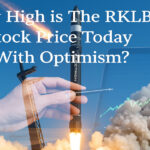

Yo BigBunny, you know what? Found some real gems on this site. The games are slick and payouts are faster than a bunny hop. Check it out! bigbunny
For all you betting enthusiasts, Tylekeo188bet is where you need to be. Solid odds and a wide range of sports. Get your bets in! tylekeo188bet
Alright, Satta Matka No. 1 Bet! Getting straight to the point, I see. Used the site and found the layout to be quite easy to work with. Might be worth looking into if this is your kind of thing. Here’s the link: sattamatkano1bet.
Sự tích hợp đa phương thức thanh toán tại xn88 là gì từ chuyển khoản ngân hàng đến tiền điện tử, mang lại sự tiện lợi và linh hoạt tối đa cho quý khách hàng. TONY12-30